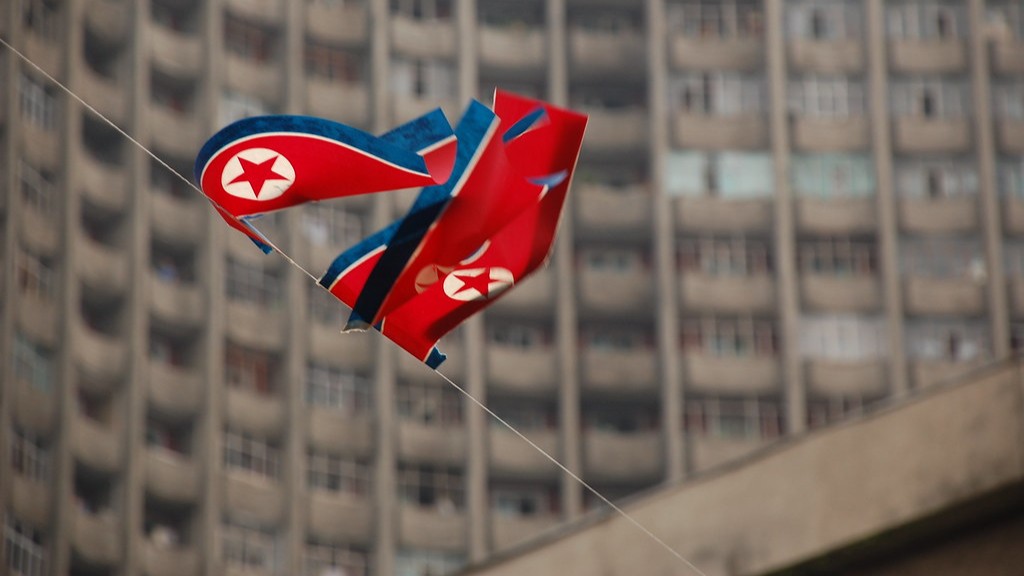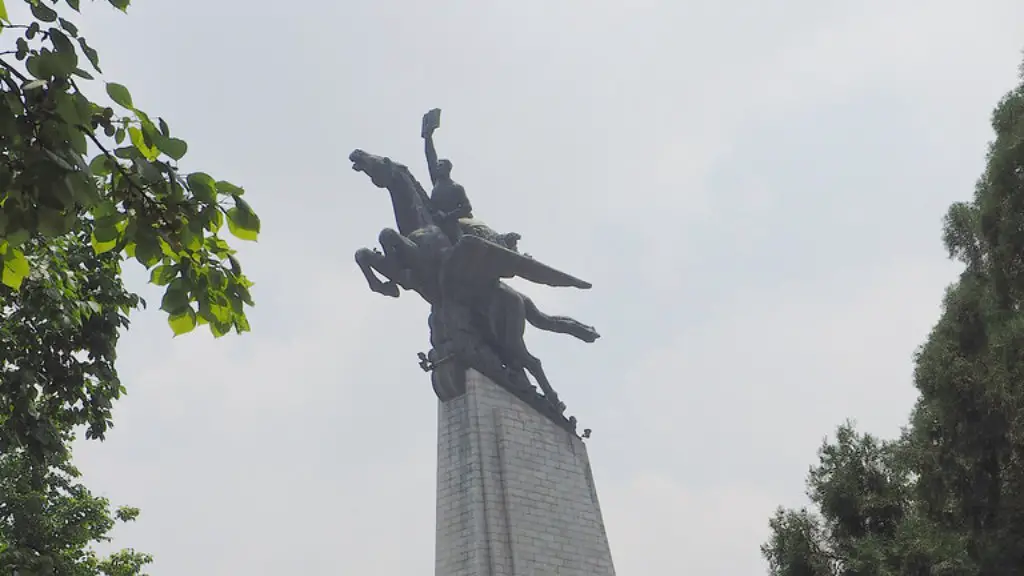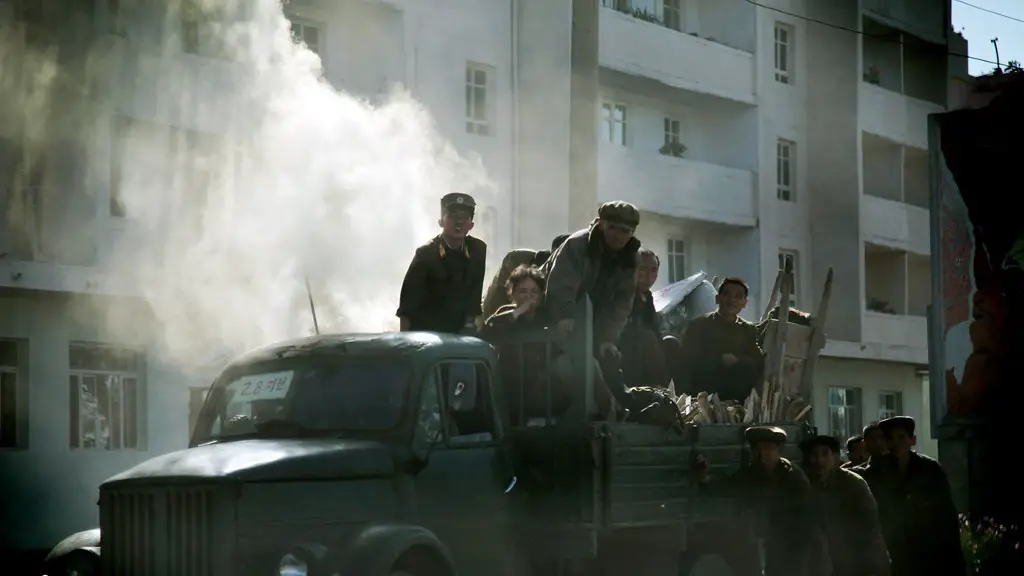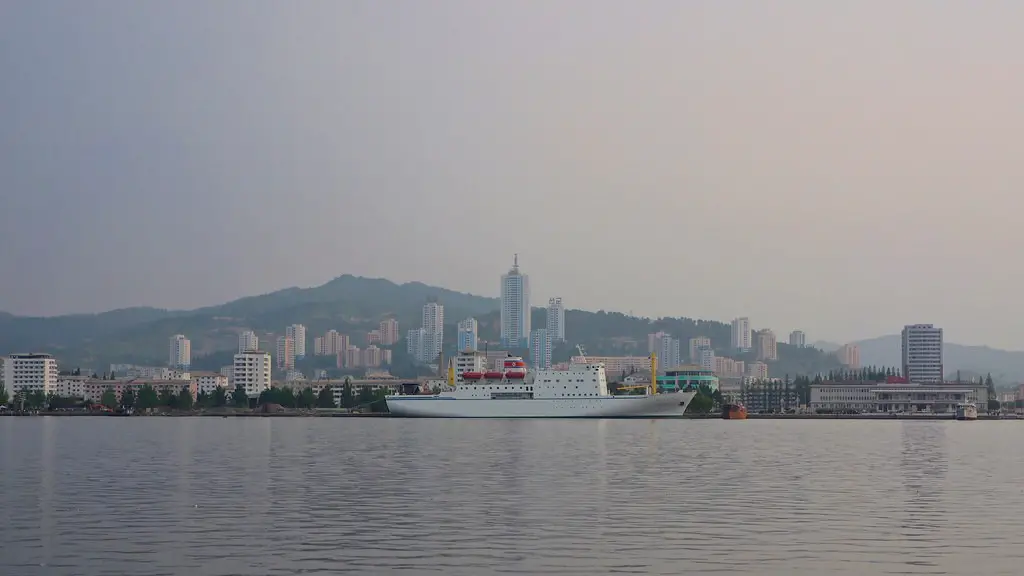After months of escalating tensions between North Korea and the United States, things have been relatively quiet for the past few weeks. So what’s going on in North Korea right now? Although it has been out of the headlines, the situation in North Korea is still a cause of great concern. North Korea has continued to make missile and nuclear tests in the region while developing its nuclear capabilities, and recent intelligence reports suggest that its nuclear weapons may soon be operational.
The hermit kingdom is led by Kim Jong Un. Despite international pressure, Kim’s regime has defiantly continued to develop and expand its nuclear arsenal and missiles, testing several missiles and conducting nuclear bomb tests in the past few months. In July 2017, it test-launched an intercontinental ballistic missile. This test demonstrated that North Korea has achieved some success in its effort to develop a missile capable of delivering a nuclear warhead to cities throughout the United States.
In addition to the missile and nuclear tests, North Korea has also engaged in aggressive military maneuvers in its coastal waters. In late August 2017, North Korea flew two of its jets across the demarcation line which separates the two Koreas, prompting South Korea to respond with jets of its own and fire warning shots. This was a significant act of defiance by North Korea, demonstrating the strength and boldness of Kim’s authoritarian regime.
Experts are warning that the situation in North Korea could spiral out of control. North Korea has been escalating its rhetoric, making aggressive statements about wiping out the United States and South Korea. With its nuclear capability becoming increasingly sophisticated, the danger of an armed conflict is increasingly real. The United States, South Korea, and the United Nations Security Council have all strongly condemned North Korea’s provocative behavior.
Even so, there are signs of hope. Recently, North Korea opened the door to negotiations and, although skepticism remains, many experts believe that de-escalation of tensions may be possible. However, any attempt to de-escalate tensions will have to be carefully managed, as North Korea has repeatedly demonstrated that it is not interested in merely preserving the status quo.
The situation in North Korea is still highly volatile and unpredictable. With that being said, the United States, South Korea, and other countries in the region must remain vigilant in order to prevent any further escalations. It is unclear what the future will bring, but one thing is certain – North Korea’s government and nuclear ambitions pose a threat to world peace that must be dealt with delicately.
Remedies To North Korea’s Nuclear Program
In the wake of North Korea’s nuclear tests, the international community is scrambling for a solution to this perilous problem. One solution that has gained a considerable amount of traction is diplomatic pressure, taking the form of economic sanctions and diplomatic isolation. Last month, the United Nations Security Council passed a unanimous resolution to impose the toughest international sanctions ever placed on the North Korean regime. These sanctions are intended to cut off some of the regime’s access to money and resources, thus crippling its nuclear program.
Another possible solution is a military strike. For months, the United States has been building up its forces in the region, primarily in an attempt to get North Korea to the negotiating table. It is possible that the United States could decide to launch a precision military strike against North Korea’s nuclear sites in order to eliminate the threat they pose. While this would certainly be a highly risky strategy, it is one that has been considered by United States political leaders.
The most promising solution, however, may be a negotiated agreement. After months of escalating tension and rhetoric, North Korea has recently opened up to talks with the United States. This could be a potentially game-changing development, as negotiations could lead to a deal that would curtail North Korea’s nuclear ambitions and bring an end to the current standoff. While it is still uncertain what will happen in the near future, diplomatic negotiations are definitely the best path forward.
The Role Of China In Resolving The Crisis
An increasingly important but often overlooked factor in the North Korea crisis is the role of China. China is the only country to have significant economic ties with North Korea, and it has been heavily influenced by the Kim regime. It is also the closest thing North Korea has to an ally, and could potentially serve as a mediator to the negotiations between North Korea and the United States.
China has already shown some willingness to confront North Korea’s nuclear weapons program. In 2017, they voted in favor of the United Nations’ new sanctions against North Korea and have publicly denounced their nuclear ambitions. It is increasingly likely that China will play a key role in any diplomatic negotiations between the United States and North Korea.
The stakes are high for China as it seeks to maintain its strategic interests in the region. A war between the United States and North Korea would have a devastating impact on the entire region, including China. China therefore has a vested interest in finding a peaceful resolution to the crisis, and it is likely that their influence will only grow in the coming months.
The Negative Impact Of Nuclear Weapons In North Korea
The development of nuclear weapons by North Korea could have a lasting and negative impact on the Korean Peninsula and beyond. Nuclear weapons are highly destructive, and their use in any conflict would have catastrophic implications for the region. North Korea’s possession of nuclear weapons could also embolden the country to act aggressively in the region, further destabilizing the already tense situation.
Another negative impact of North Korea’s nuclear weapons is the arms race it has sparked in the region. Countries such as Japan and South Korea have begun to take steps to increase their own military capabilities in response to the heightened tensions with North Korea. This has the potential to spark a wider nuclear arms race in the region, with catastrophic consequences.
Moreover, the United States and other countries have long believed that the cost of opposing North Korea is too high. This has effectively given the North Korean government a pass on its blatant disregard for international law and human rights. If these costs are not addressed, it is likely that the situation in North Korea will only further deteriorate.
International Actions To Contain The Crisis
The international community has taken a number of steps to try to contain the crisis in North Korea. In addition to economic sanctions, the United Nations Security Council has been working to de-escalate the situation by pushing for talks between the United States and North Korea. The United States has also been leading a campaign of “maximum pressure” on North Korea, deploying more military assets to the region and increasing its diplomatic efforts.
Meanwhile, South Korea and Japan have maintained a cautious stance, keeping a close eye on the situation in North Korea while attempting to avoid antagonizing the regime. South Korea in particular has been active in its efforts to engage North Korea diplomatically, hosting several high-level inter-Korean summits this year. China has also taken a significant role, attempting to use its influence to mediate talks between the United States and North Korea.
The traditional role of the United Nations Security Council has also been vital in this situation, as it has passed several resolutions imposing sanctions and other measures on North Korea. This has sent a strong signal to the international community that the United Nations will not tolerate North Korea’s illegal nuclear activities.
Public Sentiment On The Issue
Public opinion polls show that the majority of people in the United States, South Korea, and Japan are opposed to North Korea’s possession of nuclear weapons. The public is concerned that North Korea’s actions could lead to an armed conflict in the region, and is growing increasingly frustrated with the government’s inability to contain the situation. This has resulted in an increased demand for stronger action from the international community.
Public opinion also has a significant impact on the politicians in the region. Politicians in the United States and its allies have come under increasing pressure from the public to take more decisive action to contain the crisis. This has resulted in a tightening of sanctions against North Korea and an increase in military assets in the region.
Yet despite the increased pressure for action, the public is also aware that there must be a diplomatic solution to the crisis. The majority of people in the region are supportive of diplomatic efforts to reach a peaceful solution to the situation. This has been reflected in the strong support of diplomatic negotiations between the United States and North Korea.
The Potential For Conflict
Although the United States has so far refrained from military action, the possibility of armed conflict remains real. The risk of a conflict could increase significantly if North Korea were to launch an attack, or if the United States were to decide to launch a pre-emptive strike against North Korea’s nuclear facilities. In either case, the consequences of a conflict would be devastating for the entire region.
The risk of a conflict is also heightened by the current state of affairs in the region. Tensions between the United States and North Korea have been escalating for months, and North Korea has been particularly defiant in its pursuit of nuclear weapons. This has made it increasingly difficult to find a diplomatic solution to the crisis. As such, the risk of a conflict in the region has never been higher.
The international community must do everything it can to prevent a conflict in the region. The lives of millions of people are at stake, and even a limited conflict in the Korean Peninsula could have disastrous consequences for the entire world. The United States and its allies must work to find a diplomatic solution to the crisis, one that will ensure the safety and security of the region.





